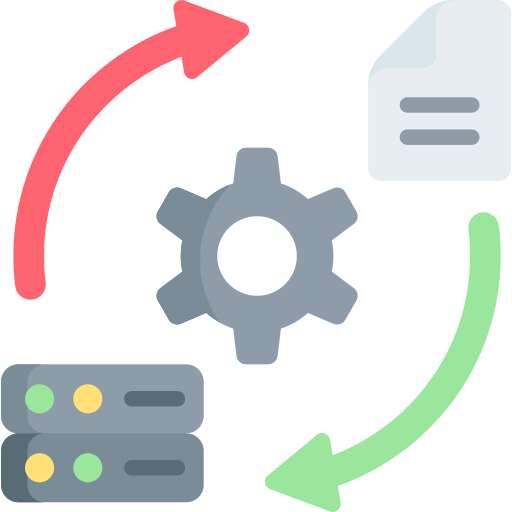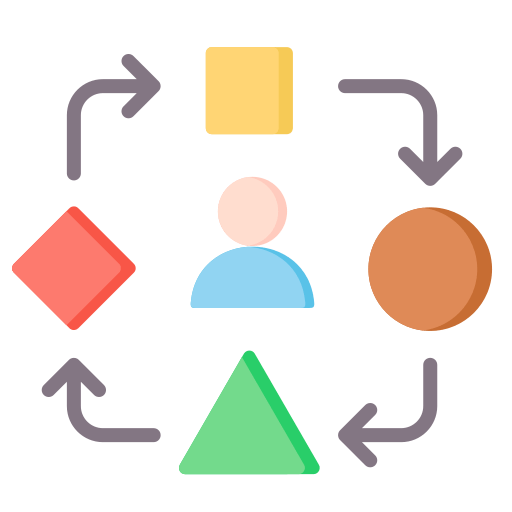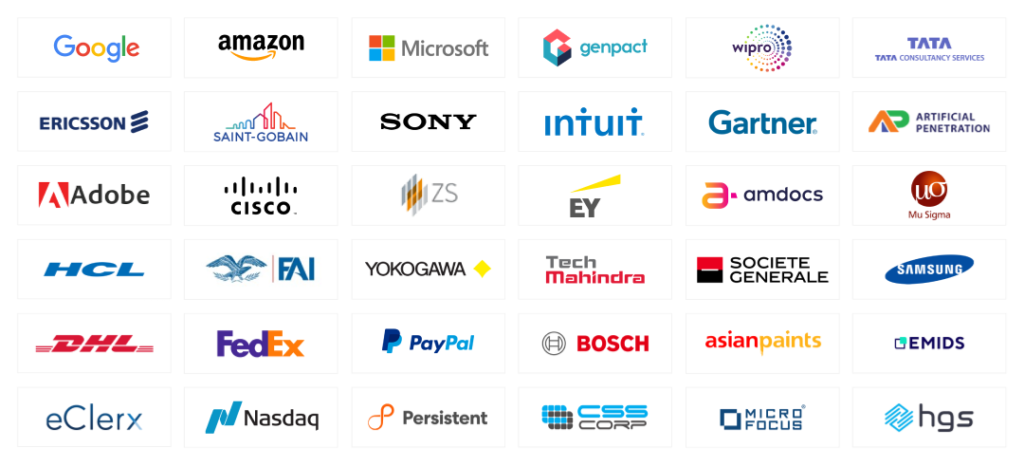Home » Advanced Computer Vision Certification Course
Advanced Computer Vision Certification Course
Cloud Computing & DevOps Expert Certification Program is a comprehensive program that blends the latest in cloud computing and DevOps methodologies. It’s designed to empower professionals with advanced skills for managing modern IT infrastructure effectively.
In collaboration with

Aryavart Institute Technology
- Program Duration: 6 months
- Learn from Industry Experts.
- Collaborative Learning Environment
Key Highlights

Industry-relevant skills for various roles

Comprehensive curriculum

Expert faculty with industry experience

Prestigious certification upon completion

Ongoing support and resources post-program

Industry-relevant skills for various roles

Career advancement opportunities

Transformative learning experience

Flexible learning formats
About the program
This Advanced Computer Vision Certification Course is designed to equip participants with expert knowledge and practical skills in the field of computer vision. The course covers a broad spectrum of topics, including image processing, machine learning for computer vision, neural networks, deep learning, and more.
Participants will learn from industry professionals through a blend of lectures, hands-on exercises, and real-world projects. The curriculum is meticulously designed to ensure participants gain a comprehensive understanding of core concepts and develop the essential skills needed to thrive in today’s rapidly advancing technological landscape.
Upon successful completion of the course, participants will receive a certification that attests to their expertise in computer vision, thereby enhancing their career prospects in this field. With an emphasis on practical learning and industry relevance, this course provides participants with the tools and knowledge necessary to excel in the dynamic domain of computer vision.
Transitioning to a new career
Transitioning from a software developer to a Computer Vision Engineer was a dream come true for me. The Advanced Computer Vision Certification Course provided me with the necessary skills and knowledge to make this switch. The hands-on projects and real-world applications were particularly beneficial. I now work on developing innovative computer vision solutions for a leading tech firm. This course has truly transformed my career
Priya Patel
Coming from a background in mechanical engineering, I was looking to pivot into a more tech-focused role. The computer vision course opened new doors for me. The comprehensive curriculum and expert guidance helped me grasp complex concepts and apply them effectively. I am now employed as a Robotics Engineer, where I use computer vision to enhance robotic functionalities. This course has been a game-changer for me
Rajesh Kumar
With a background in data analytics, I was keen to specialize in a niche area. The computer vision course was exactly what I needed. The blend of theoretical and practical learning helped me develop a strong foundation. Today, I work as a Data Scientist specializing in computer vision, analyzing visual data to derive actionable insights. This course significantly boosted my career trajectory
Neha Gupta
As an electrical engineer, I wanted to transition to a more cutting-edge field. The Advanced Computer Vision Certification Course provided the perfect pathway. The in-depth knowledge and hands-on experience I gained were invaluable. I am now a Healthcare Imaging Specialist, developing computer vision solutions for medical imaging. This course has enabled me to make a significant impact in the healthcare industry
Arjun Reddy
Working as a traditional IT consultant, I wanted to shift towards a more specialized and exciting domain. The computer vision course exceeded my expectations. The practical projects and industry-relevant curriculum equipped me with the skills needed to excel. I am now an AI Product Manager, overseeing the development of computer vision-based products. This course has been instrumental in my career shift
Anjali Mehta

Professional Growth and Development

Increased Opportunities and Advancement

Alignment with Personal Goals and Values

Adaptability and Resilience:
Who Can Apply for the Course?
- Software Developers and Engineers: Individuals seeking to enhance their skills with computer vision techniques.
- Data Scientists and Analysts: Professionals looking to specialize in visual data analysis and interpretation.
- IT Professionals: Those wanting to transition into AI and computer vision roles.
- Professionals from related fields, such as software development or system administration, looking to expand their expertise into cloud computing and DevOps.

Roles That DevOps and Cloud Computing Professionals Can Fulfill
Computer Vision Engineer
Develops algorithms and systems for interpreting visual data, such as object detection and image recognition.
Machine Learning Engineer
Designs and implements machine learning models focused on visual data processing.
Data Scientist
Analyzes large sets of visual data to extract insights and build predictive models.
Robotics Engineer
Integrates computer vision into robotic systems for navigation, object manipulation, and environment interaction.
AI Product Manager
Oversees the development and deployment of AI-driven products that utilize computer vision technologies.
Healthcare Imaging Specialist
Applies computer vision techniques to medical imaging for diagnostics and treatment planning.
Skill Covered
Image Processing
Libraries and Frameworks
Data Augmentation
Machine Learning
Object Detection and Recognition
Model Evaluation and Validation10
Deep Learning
Image Segmentation
Model Deployment
Neural Networks
3D Vision and Depth Estimation
Real-time Processing
Programming and Scripting
Video Analysis and Processing
Optimization and Efficiency
Tools Covered









Curriculum
Week 1-2: Introduction to Computer Vision
- Overview of computer vision applications
- History and evolution of computer vision
- Basic concepts and terminology
Week 3-4: Image Processing Fundamentals
- Introduction to OpenCV
- Reading, writing, and displaying images
- Image transformations (resizing, rotating, cropping)
- Color spaces and conversions
- Basic image operations (blurring, sharpening, thresholding)
Week 1-2: Advanced Image Processing Techniques
- Edge detection (Sobel, Canny)
- Image segmentation (thresholding, contour detection)
- Morphological operations (erosion, dilation, opening, closing)
Week 3-4: Feature Detection and Matching
- Keypoint detection (Harris, SIFT, SURF)
- Descriptor extraction and matching (ORB, BRIEF, FLANN)
- Homography and perspective transformations
Week 1-2: Introduction to Machine Learning
- Basic machine learning concepts
- Supervised vs. unsupervised learning
- Scikit-learn basics
Week 3-4: Applying Machine Learning to Image Data
- Image classification with k-Nearest Neighbors (k-NN)
- Support Vector Machines (SVM) for image recognition
- Decision trees and random forests
Week 1-2: Introduction to Neural Networks
- Basic neural network concepts
- Introduction to TensorFlow and Keras
- Building and training simple neural networks
Week 3-4: Convolutional Neural Networks (CNNs)
- Architecture of CNNs
- Implementing CNNs with Keras and TensorFlow
- Case studies: image classification and object detection
Week 1-2: Transfer Learning and Fine-Tuning
- Concept of transfer learning
- Using pre-trained models (VGG, ResNet, Inception)
- Fine-tuning models for specific tasks
Week 3-4: Object Detection and Segmentation
- Advanced object detection techniques (YOLO, SSD, Faster R-CNN)
- Semantic and instance segmentation
- Implementing object detection and segmentation with PyTorch
Week 1-2: 3D Vision and Depth Estimation
- Introduction to 3D vision
- Stereo vision and depth estimation
- Structure from motion
Week 3: Real-Time Processing and Edge Computing
- Techniques for real-time image and video processing
- Introduction to edge computing
- Deploying models on edge devices (Raspberry Pi, Jetson Nano)
Week 4: Model Deployment and Capstone Project
- Introduction to Docker for deployment
- Deploying models on cloud platforms (AWS, Google Cloud)
- Capstone project: End-to-end implementation of a computer vision application
Are you interested in this program? Reserve your spot now!
All fields are required to be filled*
Projects
You’ll engage in various projects to enhance your proficiency in sought-after technologies, gaining valuable industry experience in the process.
Create a facial recognition system that can authenticate users in real-time. This project involves training a model to recognize and verify individuals' faces, enhancing security systems for various applications, including access control and surveillance.
Design a computer vision system to monitor drivers for signs of drowsiness and fatigue. The project includes developing an algorithm to detect eye closure and head movements, alerting the driver to take a break and prevent accidents.
Create a scalable and secure storage solution in Azure that meets the diverse needs of an enterprise application. This includes deploying different types of Azure storage accounts, configuring data access, and ensuring data redundancy and security.
As an Azure engineer, your task is to configure and manage Azure Active Directory (Azure AD) to facilitate secure identity and access management for Azure resources and applications.
Develop, deploy, and optimize a data warehouse solution using Azure Synapse Analytics. The solution should handle data integration from multiple sources, ensure data security and governance, and optimize for query performance.
Placement Target Companies

Admission Details
The application process involves three straightforward stages. Admission offers will be extended to chosen applicants following evaluations by the interview panel. Successful candidates will receive notifications via email and phone, and they can secure their positions by paying the admission fee.

STEP 1: Submit Application
Please provide some information about yourself and explain your interest in joining this program.

STEP 2: Application Review
A selection committee will identify candidates for further consideration based on their application.

STEP 3: Admission
Chosen candidates will receive notifications within 1-2 weeks.
Advanced Computer Vision Certification Program
Total Admission Fee
₹ 79,000
- Transparent pricing structure with no hidden costs.
- Affordable options to suit various budgets.
- Flexible payment plans available for convenience.
- Comprehensive curriculum.
- Easy zero-cost EMI.
- Dedicated support.
Frequently Asked Questions
Your certificate will be issued electronically and sent to your registered email address upon successful completion of the program.
This course offers a comprehensive curriculum, hands-on training, expert-led sessions, and certification upon completion, all of which are valuable assets for advancing your career in cloud computing.
If you miss a lecture, recordings will be provided for review, and you can catch up with the material at your convenience. Additionally, you can reach out to the instructor or support team for any clarifications.
Upon completion of the program, you will be eligible to take certification exams from recognized bodies such as AWS, Microsoft Azure, or other relevant organizations, depending on the course content.
Our refund policy allows for a full refund within a specified timeframe if you decide to withdraw from the program. Please refer to the program terms and conditions for detailed information on our refund policy.
Yes, we offer a batch deferral option for students who are unable to continue with their current cohort. You can defer your enrollment to a future batch subject to availability and program terms.

Develop a deep learning model to identify and classify plant diseases from leaf images. The system helps farmers and agricultural professionals quickly diagnose plant health issues and take appropriate measures to protect crops.